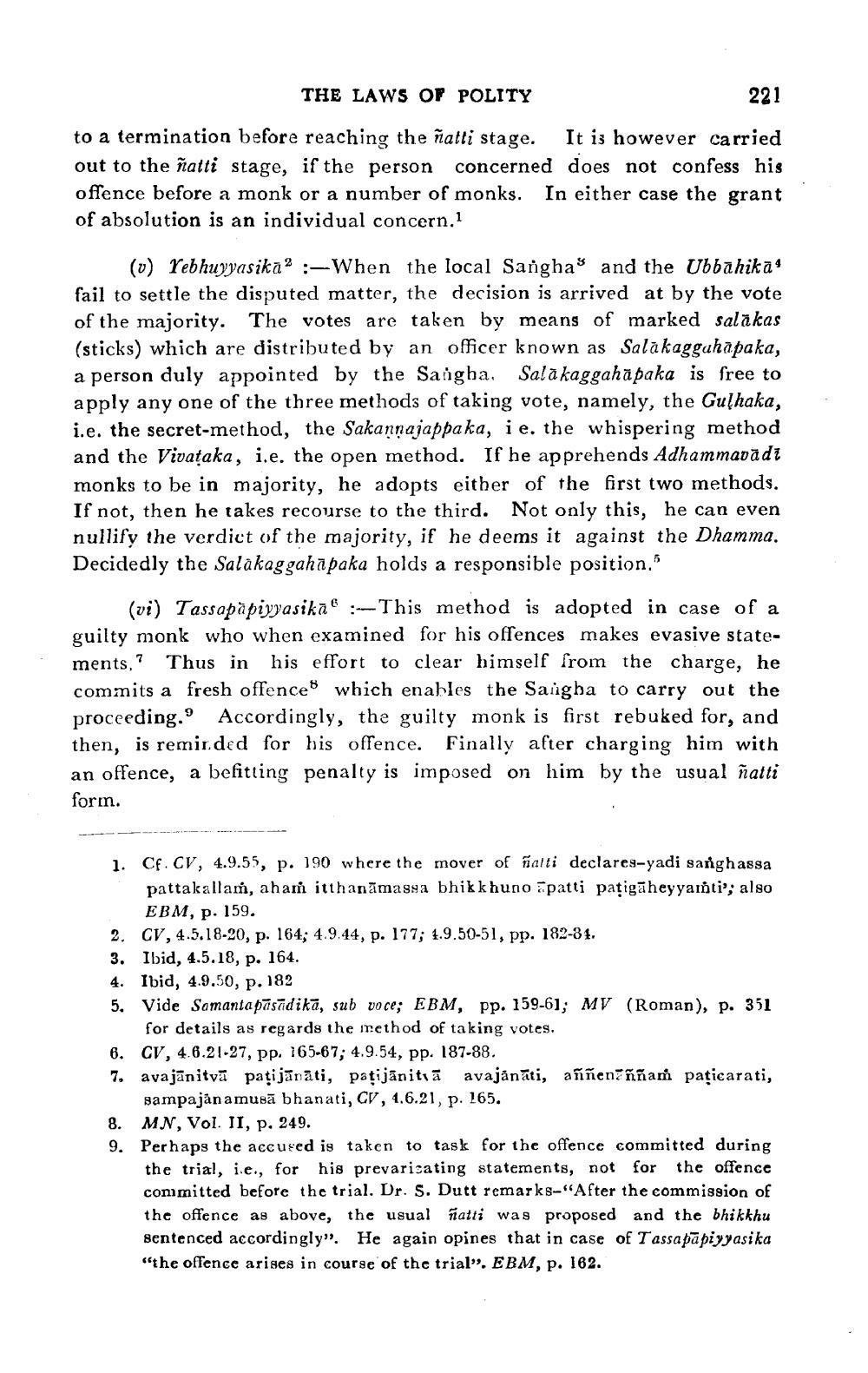________________
THE LAWS OF POLITY
221
to a termination before reaching the ñatli stage. It is however carried out to the ñatti stage, if the person concerned does not confess his offence before a monk or a number of monks. In either case the grant of absolution is an individual concern.1
(0) Yebhuyyasika? :- When the local Sangha and the Ubbahika. fail to settle the disputed matter, the decision is arrived at by the vote of the majority. The votes are taken by means of marked salakas (sticks) which are distributed by an officer known as Salakaggahapaka, a person duly appointed by the Sangha, Sala kaggahāpaka is free to apply any one of the three methods of taking vote, namely, the Guļhaka, i.e. the secret-method, the Sakannajappaka, i e. the whispering method and the Vivataka, i.e. the open method. If he apprehends Adhammavādi monks to be in majority, he adopts either of the first two methods. If not, then he takes recourse to the third. Not only this, he can even nullify the verdict of the majority, if he deems it against the Dhamma. Decidedly the Salakag gaha paka holds a responsible position."
(vi) Tassapàpiyyasika :-This method is adopted in case of a guilty monk who when examined for his offences makes evasive statements,? Thus in his effort to clear himself from the charge, he commits a fresh offence which enables the Saigba to carry out the proceeding. Accordingly, the guilty monk is first rebuked for, and then, is reminded for his offence. Finally after charging him with an offence, a befitting penalty is imposed on him by the usual natti form.
1. CF. CV, 4.9.55, p. 190 where the mover of ñalti declares-yadi sanghassa
pattakallam, aham itthanāmagga bhikkhunopatti patigāheyyanti'; also
EBM, p. 159. 2. CV, 4.5.18-20, p. 164; 4.9.44, p. 177; 1.9.50-51, pp. 182-84. 3. Ibid, 4.5.18, p. 164. 4. Ibid, 4.9.50, p. 182 5. Vide Samantapasūdikā, sub voce; EBM, pp. 159-61; MV (Roman), p. 351
for details as regards the irethod of taking votes. 6. CV, 4.6.21-27, pp. 165-67; 4.9.54, pp. 187-88. 7. avajānitvā pațijānāti, patijānitā avajānāti, aññenaññam paticarati,
sampajän amusā bhanati, CV, 4.6.21, p. 165. 8. MN, Vol. II, p. 249. 9. Perhaps the accused is taken to task for the offence committed during
the trial, i.e., for his prevaricating statements, not for the offence committed before the trial. Dr. S. Dutt remarks-"After the commission of the offence as above, the usual natti was proposed and the bhikkhu sentenced accordingly'. He again opines that in case of Tassapāpiyyasika "the offence arises in course of the trial”. EBM, p. 162.




